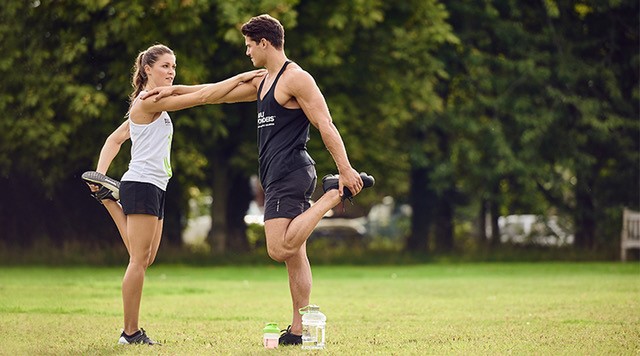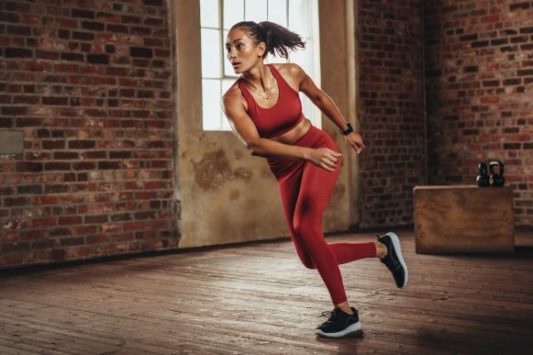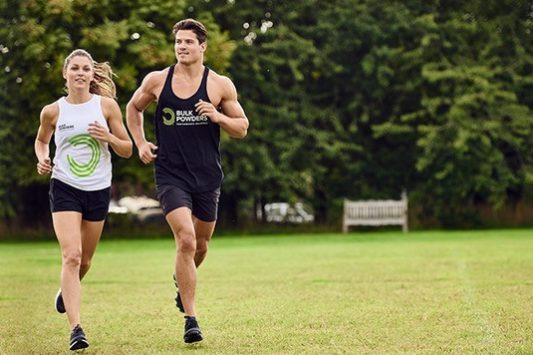After your endurance event, or a day of training ahead of your planned endurance event, you need to have your recovery strategies right!
Poor recovery = Poor subsequent training = Reduced sports performance (a bad equation basically – so let’s not even entertain this possibility).
In recovery we want to know about…
- Carbs
- Protein
- Alcohol
- Briefly on hydration (because this has its own article)
One important thing to note is that nutrition strategies don’t follow a general “do this in recovery and all will be well”. It very much depends on things like:
- How long have you trained for?
- How hard did you train?
- Have you picked up a slight injury? *
- Is your appetite suppressed after training?
Etc. These all influence a person’s recovery.
1. First up, carbs
The things you need to know with carbs in recovery are; which, when and how many.
After training we have metabolic changes that occur that go in favour of replenishing glycogen stores (restoring the liver and muscles with glucose), especially in the first 1-2 hours. So, we need to enhance this metabolic adaptation evolution has given us and I’ll tell you how!
- Eat carb rich foods/snacks/drinks immediately after training – around 50g. This could be something like 1 medium banana and a glass of fruit juice, 1 cup of white pasta or around 10 pitted dates.
- After this, during the following 4 hours post training consume 1.0g/kg of body weight to 1.2g/kg of body weight in carb rich foods/snacks/drinks. Try eating/drinking every 60 minutes. Again, something like white bagels with jam, energy bars or dried fruits.
E.g. for me at 63kg, this would mean eating around 75g of rich carby foods every hour for 4 hours.
Follow the below as a guide to know how many carbs you should eat on a daily basis based on the training you’re doing. I’ve used my body weight of 63kg as an example…
Moderate duration & of low intensity = 5-7g/kg body weight (BW) equates to 315g-441g
Moderate to heavy training = 7-12g/kg BW equates to 441-756g
Heavy training e.g. >1 per day (3-6+ hours) = 10-12g/kg BW equates to 630-756g
- One thing to note is that you don’t have to have your carbs from big main meals. If you’re a person who would rather have about 15 carby snacks over the rest of the day after you train then go for that! Whatever suits you as long as you consume the entire amount of daily carbs you have calculated that you need!
If I’m training twice per day. How should I eat?
This is super important to know about. When time is limited between your sessions you need to start maximising glycogen resynthesis immediately following the advice given.
- Make high GI (very carby) foods your primary options (bagels, energy bars/gels, white pasta, high carb sports drinks, dried fruits).
- Eat/drink regularly, maybe aim for every 20-30 minutes?
- Avoid low GI carbs e.g. quinoa, the fibre content may mean not all the carbs are absorbed, and you might feel full risking not getting an efficient glycogen resynthesis.
If I have 24 hours between my training sessions. How should I eat?
Generally scoffing food within a short space of time isn’t of great importance here. Your main aim is just to get all your carb needs over the rest of the day. In this case, you have the time to plan meals and snacks into a routine that’s comfortable, rather than having to set 30-minute alarms to swallow the next bulk of carbs!
However, I’d still recommend…
- making sure you have the 50g carbs immediately after exercise as you’ll optimise those metabolic changes that occur.
- Still focusing your meals and snacks on foods that are moderate to high GI though to maximise that recovery!
*why did I mention injury?
If you pick up a bit of a muscle strain during one of your training sessions, you should really ensure you definitely 100% meet your carbs or slightly increase them over the proceeding 24 hours (relative to the intensity of your session I gave the g/kg BW on).
Why?? … because muscle damage can reduce the ability of restoring glycogen properly. So, you will be susceptible to a poorer recovery if you don’t account for things like muscle strains that will undoubtedly occur on your training programmes!
2. Protein
Protein may also be able to offer some benefit too.
Some research suggests consuming protein and carbs after endurance training can enhance glycogen resynthesis. However, it seems this is when you’re not consuming enough carbs alone to meet your recovery needs.
Perhaps this might be useful for women particularly, who show to be more restrictive of energy intakes and carbs. Therefore, this might be a good strategy for you to prevent any inadequate recovery!
Generally, people like to consume protein for the benefits of avoiding a “negative nitrogen balance” – a state of muscle breakdown, to help repair damaged tissues and also to provide the body with branched chain amino acids (BCAAs) that get oxidised pretty fast, especially in endurance exercise.
However, in endurance recovery it’s important to make sure that we are never consuming an amount of protein that will sacrifice our appetite to a point that we don’t get our daily carb needs!
Remember in endurance recovery – carbs are a high priority!
Protein is important though, as after exercise we have an ‘anabolic’ (building up) state, so we can maximise an opportunity for building & retaining muscle – obviously important for our power/endurance capacity! Make sure with protein that you…
- aim to get your protein from high quality sources too like; eggs, meat, fish, whey protein, whole grains, beans & peas etc.
- increase your protein when the intensity and duration of your training starts to increase.
- Consume protein together with carbohydrates. As an example idea, Bulk™ Complete Recovery™ provides a 2:1 blend of carbohydrate:protein, making it a good choice during the recovery period between workouts.
3. Alcohol
In some instances, there is a ‘trend’ to consume alcohol after training/competition in people (this may sometimes be more applicable to games players). However, it’s worth mentioning here as replenishing glycogen stores is so critical after endurance training and so we need to know the negative impact alcohol causes.
It is suggested that alcohol may have some effect on interrupting glycogen synthesis, however the main reason alcohol causes havoc is thought to be due to its interruption with getting enough carbs on board post training.
If you’re serious about your training but enjoy a drip of alcohol, factor it in at appropriate times if you must. However, just remember that choosing to bicep curl beer into your mouth rather than a carb-electrolyte drink post training will not benefit you in any way, shape or form!
4. Hydration (briefly)
As hydration is covered in its own article, I’ll just give a summary of points you need to know of in a recovery rehydration strategy.
- You need to drink sports drink that contains electrolytes, particularly sodium – which is pivotal in recovery! Without taking enough sodium on board you could induce significant dehydration & diluted electrolytes.
- You must drink more than what is lost as sweat. Optimal amounts are between 150 and 200% of the amount of fluid you lost as sweat!
- Chose a drink (with a good sodium content) that tastes nice and that you could drink a decent volume of over a 6-hour recovery period. Rehydration is so important and no-one is going be sat forcing you to drink, so you want something you’re going to want to drink willingly!
I hope this has given some insight into what you need to consider in your endurance training. Coupled with my other article on ‘sports nutrition advice for endurance events – before & during’, I hope my advice offers you some enhanced performances in your future events!
Related articles
Looking to learn more? We believe that every person, with support, has the right to transform their lives through fitness. That’s why we’ve put together hundreds of articles with expert advice, all to help you on your fitness journey. Here are more articles on gym training accessories, including lifting straps, wrist wraps and knee wraps.
Stretches for runners Weight training for boxing
Best food for runners Muscle building and running
How to train for an Iron Man Does alcohol effect your recovery from training?
What is dorsiflexion? Holiday workouts for abs, fat loss and muscle growth
Adding running to your gym routine Supplements for endurance
What to eat before a run Should you take pre-workout before cardio?














